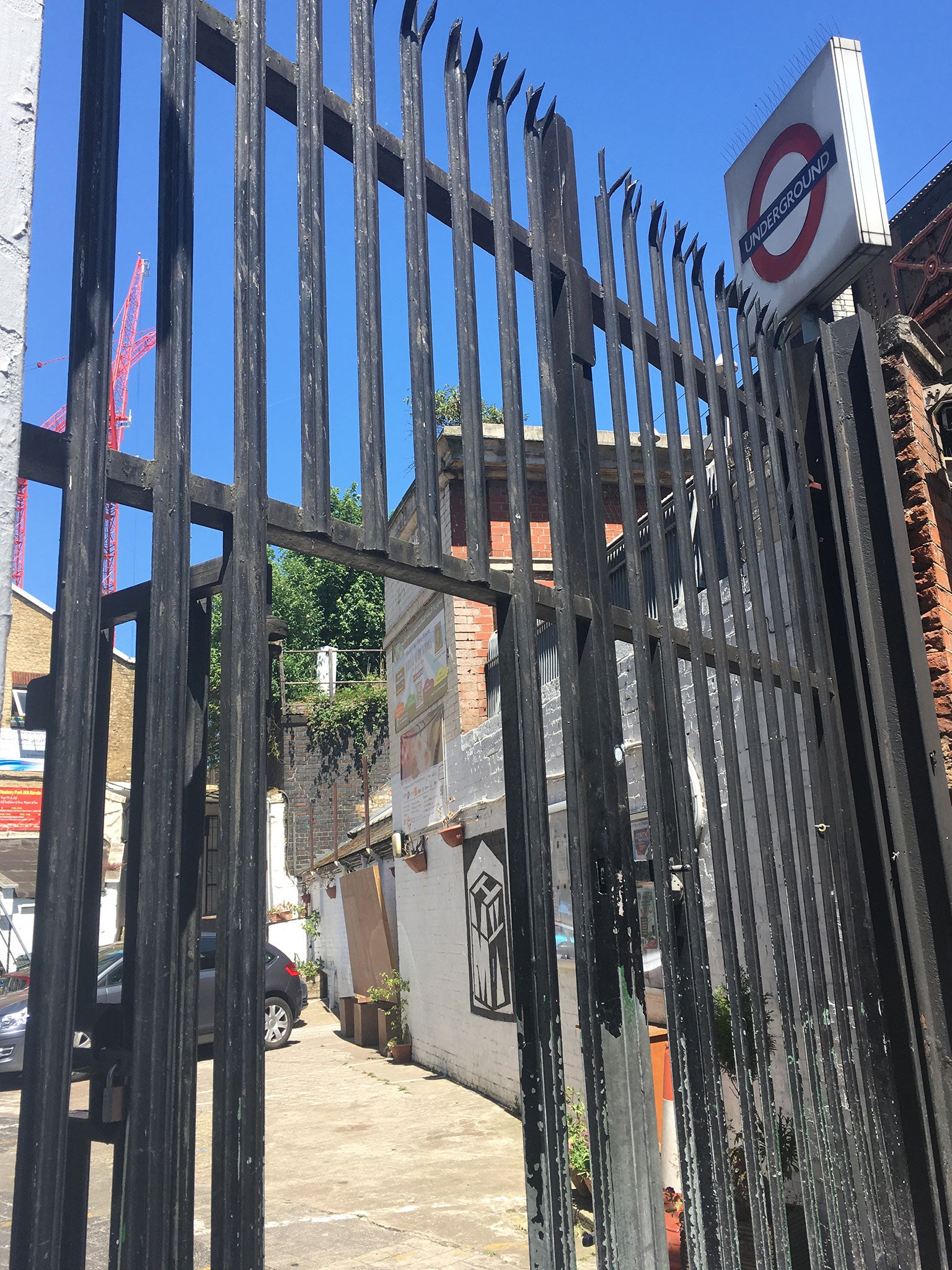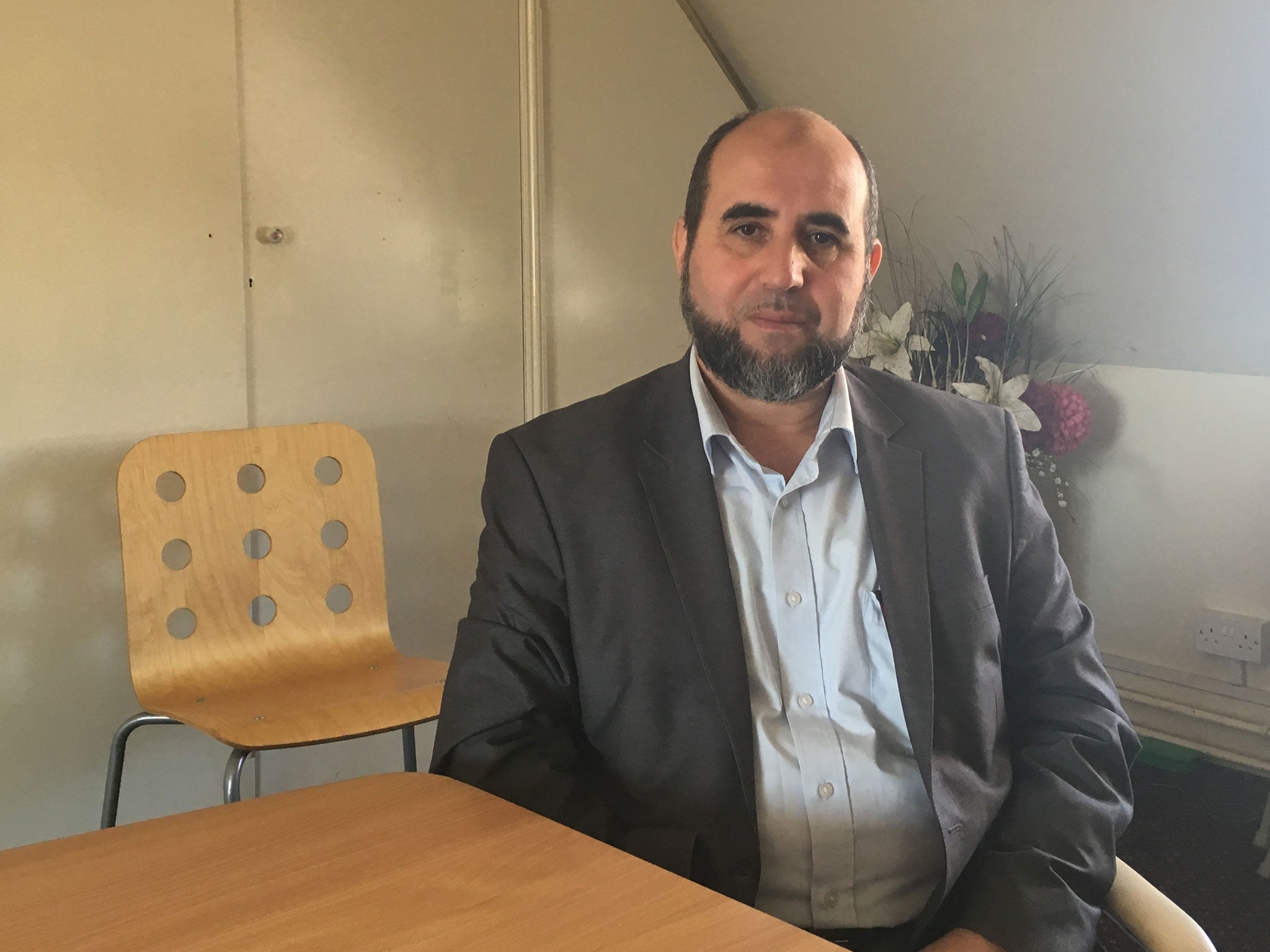'We will kill you all': Finsbury Park mosque reveals vile threats one year after far-right terror attack
Exclusive: ‘They want to divide us, they want to turn us against each other and tear us apart. We can’t allow them to do that,’ says head of Muslim Welfare House
A mosque whose worshippers were mown down by a far-right terrorist has been targeted with vile letters containing white powder and threatening new atrocities against Muslims.
Toufik Kacimi, chief executive of the Muslim Welfare House, revealed the extent of the hate campaign to The Independent a year after the Finsbury Park attack left one man dead and 12 victims injured.
“There are thousands of other Darren Osbornes and it’s just a matter of time,” said one threat sent to the mosque and community centre.
“What Darren Osborne did was just the beginning, we will kill you all,” read another.
Mr Kacimi said the fresh threats, which have all been reported to police, left some people too scared to leave their homes or let their children walk to school, adding: “You just have to conduct your life as normally as possible but it was threatening.
“People are fearing for their lives, even a van can be a weapon now to kill people.”
Some hate mail has been personally directed at imam Mohammed Mahmoud, who was praised by a judge for preventing survivors of the Finsbury Park attack beating Osborne and helping police detain him.
“They knew what they were doing, they knew the organisation, they knew the address, they knew some of our names,” Mr Kacimi said.

“We have had to take so many extra security measures… before it was so peaceful.
“This is a place where people come to get together, socialise, have a moment for prayer and reflection.
“We are a charity offering a place where people can relax, but you can’t anymore. We have to quiz people: ‘Who are you? Let me check your bag, what is inside?’”
Sitting next to busy Finsbury Park station in London, the Muslim Welfare House used to have an open-door policy for worship, education, training, meetings and other events.
Now, the black metal gate is often shut and visitors are checked on a camera intercom before being buzzed inside, then watched by more than 30 new CCTV cameras.
A new intruder alarm has been installed and private security guards have been hired to work extra hours.
Mr Kacimi is concerned that such protections cannot be effective until the root cause of extremism is tackled.
“A year on from the attack, I feel that the messages of hate are still very much there,” he said.
“It’s a cancer and I cannot see the difference between those who commit acts of terrorism under the name of Islam and people like Darren Osborne.
“They are exactly the same – the hate, the means, the language, it’s exactly the same.”
Osborne, a 48-year-old extremist from Wales, ploughed a hired van into a crowd of Muslims outside the Muslim Welfare House following Ramadan prayers in the early hours of 19 June 2017.
Rapidly radicalised by online material posted by Tommy Robinson, Britain First and other far-right figures, he had initially planned to target a pro-Palestinian march in central London but was thwarted by security measures.
Osborne then started asking for directions to Finsbury Park Mosque and drove into the first group of Muslim worshippers he saw, killing grandfather Makram Ali and telling witnesses: “I’ve done my job, you can kill me now.”
Mr Kacimi arrived at the scene to find victims strewn on the ground and “chaos” in the streets, saying he and fellow community leaders feared the start of riots and made people disperse.
“My body was shaking, I was trembling,” he recalled. “I felt like we were in a war zone, like this was Iraq or Syria.
“Thank God the UK is usually a very quiet and peaceful country, you feel safe wherever you go, but it wasn’t the case that night.”
In a suicide note left in the van, Osborne claimed he was taking revenge on Muslims for Isis-inspired terror attacks in Britain and grooming gangs in a rant filled with racial slurs.
Mr Kacimi was “thrilled” to see the attacker jailed for a minimum of 43 years in March but said the UK needs to educate people from childhood on tolerance, understanding and respect.

He dismissed Robinson, who has since been jailed for contempt of court over an unrelated case, as “full of ignorance” and called on society to reject messages from both the far right and Isis supporters.
Having “suffered hell” from al-Qaeda militants in his home country of Algeria, Mr Kacimi vowed to fight extremism in all its forms.
“Whether it’s in London Bridge or Westminster or Manchester, terrorists are terrorists and they are a bunch of criminals and murderers,” he added.
“They want to divide us, they want to turn us against each other and tear us apart. We can’t allow them to do that. We have to stop them and this is everyone’s responsibility.”
He raised alarm about rising incidents of Islamophobic and xenophobic hate crime, after a local woman was barred from a local McDonald’s because she was wearing a headscarf.
But the leader praised the local community in north London for an “outstanding” response to last year’s attack, seeing a deluge of tributes left at the Muslim Welfare House as local residents gathered to show their support.
“The community came together and they showed so much love and so much respect for each other despite our differences, which was beautiful to see,” Mr Kacimi said.
On Tuesday, the community will be gathering to mark one year since the atrocity with a minute’s silence followed by speeches outside Islington Town Hall, where a “book of hope” will be opened for messages.
The home secretary Sajid Javid, mayor of London Sadiq Khan and Labour leader Jeremy Corbyn will be joining community leaders, the emergency services and members of both the Muslim Welfare House and Finsbury Park Mosque for the event.
Public commemorations will be followed by a private meeting between victims and responders, while the words #LondonUnited will be projected at the scene of the attack overnight.
Join our commenting forum
Join thought-provoking conversations, follow other Independent readers and see their replies
Comments
Bookmark popover
Removed from bookmarks